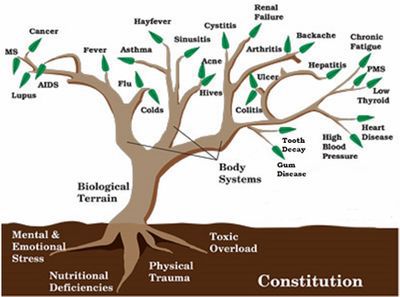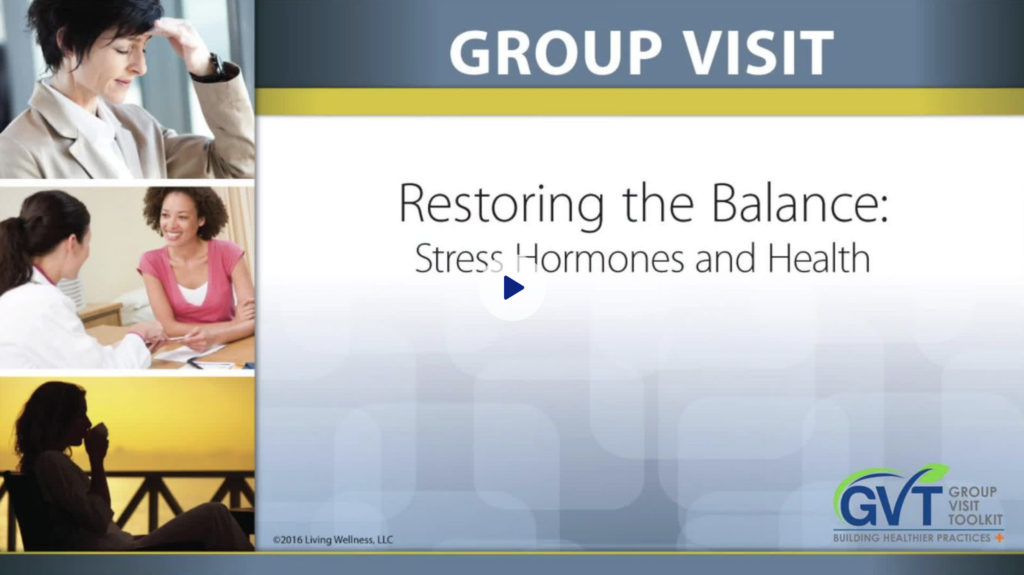
Disease Tree
The roots represent the environmental factors that feed your disease.
The soil or constitution is your genetic makeup. The trunk is the cellular environment or lymphatic fluid that surrounds each cell. This cellular environment contains most of the epigenetic (above the gene) influences. Think of it this way: genetics loads the gun, epigenetics pulls the trigger. The branches are the different body systems such as nervous, cardiovascular, respiratory, digestive, endocrine (hormones) and musculoskeletal. The leaves are the diseases which are only names and not the causes. Help yourself treat the causes.
The leaves are the diseases and associated symptoms. It is clear from this representation that there are just a few common causes for the many diagnosed diseases. Therefore naming your disease is not nearly as important as finding the root causes that are feeding it. Andrew Taylor Still, the originator of Osteopathy, doctors with a DO degree, said: "To find health should be the object of the doctor, anyone can find disease".
The purpose of this website is to offer you some self help to transform your disease tree into a tree of life blooming with health.
Physical Trauma
Physical Trauma You know when your body has been cut, bruised, and strained. Minor bleeding can be treated with herbs that help control the bleeding and reduce the potential for infection. Be bruises and strains can be helped with herbs that are anti-inflammatory, relaxing and relieve pain. Massage and Chiropractic or Osteopathic manipulation can be…
Read MoreNutritional Deficiencies
Nutritional deficiencies can be caused not only by your lack of a nutritionally dense diet, but a inability to digest, absorb, and metabolize the macronutrients ( carbohydrates, fats, and proteins), vitamins and minerals. Your metabolism produces energy and all the chemicals that nourish your body’s cells as well as making them healthy and functioning normally.…
Read MoreStress
Stress is a non-specific response or adaptation by the body to what it perceives as not safe. Non-specific means that the response is always the same, sympathetic nervous dominance causing: increased heart rate and blood pressure, increased blood levels of the hormones cortisol and adrenaline to increase energy and strength in the muscles, increased blood…
Read MoreToxicity
There is little doubt now that the air, water, food and body care products that we consume contain some amount of manmade chemicals. Just read labels for words you cannot pronounce and reports of unwanted mold and bacterial toxins. The debate continues about the level of these chemicals needed to become toxic and contribute to…
Read MoreBalancing pH
The pH of blood can range from 7.35-7.45, perhaps as high as 7.5. This is considered to be alkaline and is optimal for the health of our cells, bones and teeth. Also the body can eliminate toxins more effectively. A good indication that our blood pH is normal is the pH of our saliva which…
Read More
